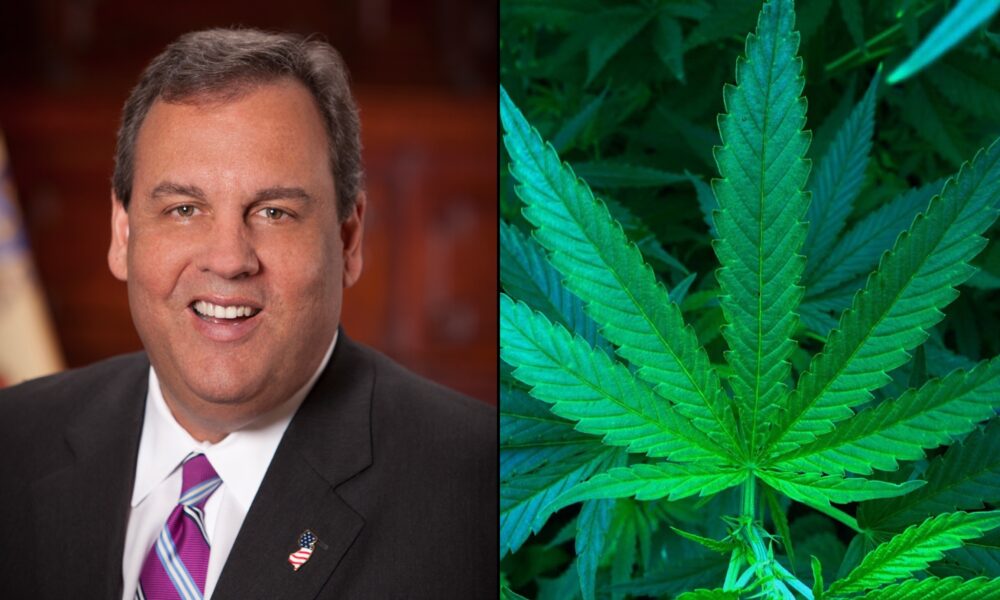Former New Jersey Gov. Chris Christie (R), a Republican 2024 presidential candidate, says that he would “end” the war on drugs if elected, emphasizing the need for a treatment-based approach to people experiencing addiction—while at the same time maintaining that he’d seek to increase enforcement against those who sell drugs.
During a recent town hall event hosted by CNN, a mother who said her son is in jail after struggles with fentanyl asked Christie what he would “do about the war on drugs, which has obviously failed so miserably.”
“End it,” the former federal prosecutor replied, despite his opposition to marijuana legalization and previous pledges to enforce prohibition in legal states during his 2016 presidential run.
“I want to focus on treatment. Look, your son—and I don’t want to pretend to know him, but I know a lot of people have gone through this. And I’ve had some dear friends who have lost their life to this,” Christie said. “He has a disease the same way heart disease, diabetes, cancer. It is a disease, and he can be treated.”
“I still want to make sure we try to interdict as much fentanyl coming across our border as we can,” he said. “I would use the National Guard to try to do that, to enhance that. That part of the war on drugs, to lower supply, should continue.”
“But the idea that incarcerating someone is going to make them not become an addict is ridiculous,” Christie said. “And it’s been proven to be wrong, because you know what happens? They get drugs in jail. And so let’s be real about this. And let’s stop stigmatizing this.”
The former governor, who also served on an opioid-focused commission under the Trump administration, then offered an interesting comparison between how the country treats people who are addicted to tobacco versus those who use currently illegal drugs.
“My mother was an addict. She was addicted to nicotine. She started smoking when she was 16, and she died at 71 of lung cancer,” he said. “And when she got diagnosed, no one came to me and said, ‘well, she’s known since 1964 it could cause cancer. She got what she deserved.’ And I never tried to hide my mother’s illness from anybody. I wasn’t ashamed.”
“But what if my mother was a heroin addict rather than a nicotine addict?” he continued. “Think I would have told everybody? Think people would have rushed to her aid? We have to change that dynamic. And a president can change that dynamic by talking about it—by saying it’s a disease and that your son needs the treatment that can help him to have the redemption I talked about.”
Beyond that personal connection to addiction, Christie said that his views on drug criminalization and addiction are based on his Catholic faith.
“Yes, I want to be tough on crime—and the dealers who are making money off this, you bet they should be penalized,” he said. “But your son sitting in jail tonight, if his crime is that he was addicted and had enough to just feed his own addiction, in my view, he should be in treatment right now, learning how to cope with his addiction and to come home to you. That’s what I’d want as president, and that’s what I’ll fight for.”
The comments during the CNN event last week offered more comprehensive insights into Christie’s drug policy philosophy. But his position is also marked by seeming contradictions: He wants to “end” the drug war, but only parts of it—and he strongly opposes cannabis legalization, even if he’s somewhat come around to the idea of states’ rights on the issue.
Throughout his career, Christie has expressed his belief that cannabis is a gateway drug, that tax revenue from regulated sales amounts to “blood money” and that marijuana use inhibits productivity and endangers children.
New Hampshire Lawmakers Reach Deal On Creating Marijuana Commission To Formulate State-Run Sales Model
Read the full article here

